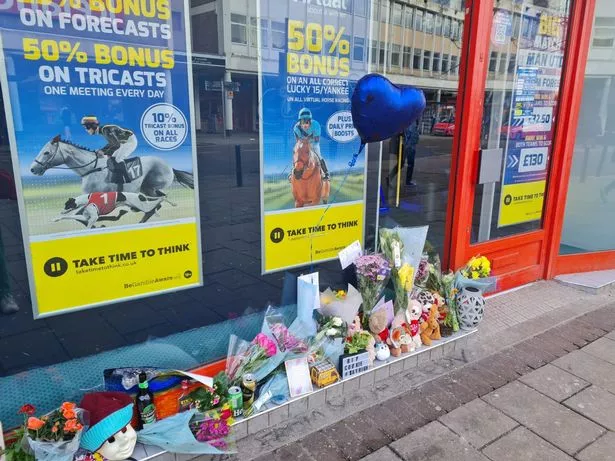
The murder trial of a homeless man, Brian Jewell, in early August found the 19-year-old guilty of killing another homeless man, Stephen Cook, in January of this year. Jewell tells the court that he was “acting in self-defence” as Cook smashed a bottle and advanced towards the teen. The fight resulted in a severe cut and lost tooth to Jewell’s face and the eventual death of 45-year-old Cook. As he lay dying, Cook delivered one last call to his daughter to tell her he loved her.
Both men had a background of violence. Jewell had been placed into care at 13 and ended up in a variety of placements – nine in total. Jewell is said to have regretted leaving mainstream schooling in his teens and that he was motivated to get a job. Jewell’s homelessness came after a failed placement in 2021 wherein he began camping along the river. His motivation for buying a knife is said to be for catching fish and basic “bushcraft”. Jewell’s social worker told the court that he did not believe Jewell had anyone he could rely on.
Cook had a reputation for being a “hard man” on the streets of Exeter. He had stacked up “dozens of convictions over the years” including a “violent assault outside of Boots in 2017”. In an interview with Devon Live, Cook explains that he “had spent half of his life in prison caused by a chaotic lifestyle of being addicted to drugs and alcohol”. In opposition to his reputation, Cook had a family before moving to Devon and he had once been hailed a hero in 2017 when he saved an unconscious man from the River Exe. After a brief stint in jail, Cook was looking forward to a fresh life after coming off drugs while in prison. Upon his release, however, no accommodation had been provided for him and he took to living on the streets again. At the time of his murder, a biopsy revealed “twice the legal limit for alcohol in his blood” in addition to “traces of cocaine, cannabis and methadone”.
This brutal case shows the nature of homelessness in Exeter.
This brutal case shows the nature of homelessness in Exeter. Such a tragedy is but a stark reminder of the life of the homeless, subject to the whims of drug use, mental health struggles, and generally poor well-being that results in poor or desperate decisions. This is a life with “no tradition of gentlemanly conduct” as Jewell’s defense puts it. This is a life of hunger, fear, and survival. With a lack of homelessness support throughout the country, is it only a matter of time until such a tragedy strikes again?

The brutality of this case has been widely reported on, yet Devon County Council has since released defunding plans that would exacerbate homelessness numbers in Exeter. After facing significant backlash for Conservative Clrr James McInnes’ plans to cut the homelessness prevention fund, the council has put a pause on the decision to cut funding. The council intends to revisit the plans in March 2024.
Among this cohort of homeless individuals, 51 were under the age of 26 with one recorded as under the age of eighteen, according to a Freedom of Information request.
The instance of Cook and Jewell may not be in isolation. Homelessness among the young, and the danger that may accompany it, has been endured by 312 individuals in Exeter City alone between July 2022 and 2023. Among this cohort, 51 were under the age of 26 with one recorded as under the age of eighteen, according to a Freedom of Information request made by Exeposè in August.
Funding provided by the Devon County Council (DCC) and Exeter County Council (ECC) currently provides a Rough Sleeping Prevention Team (RSPT) in addition to about 106 housing units across the city. DCC in particular is responsible for providing funds to social services for the unhoused. 106 units for the 312 homeless individuals under 26 leave hundreds of unhoused to face rough sleeping where they are susceptible to more violence.
It’s not just homeless individuals who are victims of this violence. As nightlife among students is abundant, young people and students share the streets of Exeter with those forced to live in brutal conditions.
It’s not just homeless individuals who are victims of this violence. As nightlife among students is abundant, young people and students share the streets of Exeter with those forced to live in brutal conditions. The horrific Nottingham stabbings in June of two University students is a reminder of this. If cuts are made, issues of violence could expand without proper mental health, addiction, and housing support.
At the same time, student homelessness is said to be on the rise. A report by the Guardian highlights that “hidden homelessness” among students is seeing a surge of students “sofa surfing” to keep a roof over their heads. Stuck in the middle of the cost-of-living crisis, these numbers will likely keep growing.
Violence among the homeless is not unidirectional. Those sharing the streets who are not homeless contribute to violence among the homeless just as well. A study by Crisis reveals that 8 in 10 homeless people have suffered some sort of violence, abuse, or anti-social behaviour in the past year. One homeless person in Cardiff told the Guardian in 2018 “[a] lot of people are looking for someone to take their rage out on and homeless people are an easy target.” Some volunteers who help the homeless describe that the people they look after are “abused, get shouted at, have beer chucked at them, and are urinated on. It’s usually drunk people.”
This is not to mention that violent encounters among the homeless are compounded by drug use, which is the main killer of the homeless at 35%. Drug use is a factor that can erupt into violence as meth and crack cocaine are known to contribute to erratic and aggressive behaviours. Alcohol use indeed incites similar violent tendencies. In Cook’s blood, traces of these substances were found.
Dangers on the streets of Exeter are often incited by those forced to live on the streets. Mixed with high rates of substance abuse and generally rough living induced by lax governmental support for the poor, differently abled, abused, or addicted – city streets will remain this way. The news reports on experiences of violence faced by Cook and Jewell is a small looking glass that links housed individuals to the expansive and treacherous homeless landscape in Exeter.


